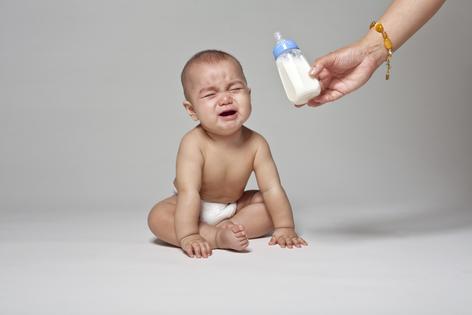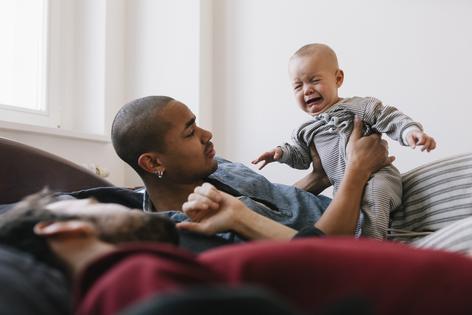Hey, new parents – go ahead and 'spoil' that baby!
Published in Health & Fitness
When an infant cries, parents frequently wonder whether they should soothe the baby or let the baby calm itself down. If they respond to every sob, won’t the baby cry more? Isn’t that spoiling the baby?
I hear these questions a lot as a professor of child development and family science. The notion of spoiling a baby remains common in the U.S., despite evidence that infants who have parents who respond to their needs are better at calming themselves down later in life.
Many of the students I teach say that their parents resisted calming their cries and that they turned out just fine. Of course, there are individual differences in early childhood development. There is no “one size fits all” for parenting.
That said, for decades now, developmental scientists have studied emotional regulation in children and the caregiver-infant bond. There is an answer to the common question of whether it’s better to comfort a crying baby or let them learn to calm themselves down. Let me explain …
Infants are born with a remarkable number of capabilities. Indeed, research shows that babies seem to “know” a lot more about the world we live and grow in than previously believed. For instance, infants possess an understanding of numbers, object permanence and even morality.
However, infants’ abilities are still immature. They rely on their caregivers to fine-tune those skills, much like other young mammals.
And one thing newborns cannot do is regulate their own distress – whether that distress comes from feeling cold, hunger, pain or any other discomfort. That ability does not develop until approximately 4 months of age. So infants need their parents’ help to calm down.
Since crying is one of the first ways infants communicate their needs to caregivers and others, it is imperative for the infant-parent bond that caregivers respond to their infant cries.
Moreover, research shows that infant cries elicit an apparent psychological need in others to ease their distress. As such, infant cries serve a fundamental purpose for both infant and caregiver.
Critically, infants also learn from the responsiveness of their caregivers what it feels like to calm down. This feeling is similar to the internal changes that adults and older children feel when they regulate their emotions – that is, their heart rate slows and they feel at ease. This repeated experience gives infants new life skills: Longitudinal research indicates that infants whose caregivers respond to their distress are better able to regulate emotion and behavior as they get older.
...continued











Comments